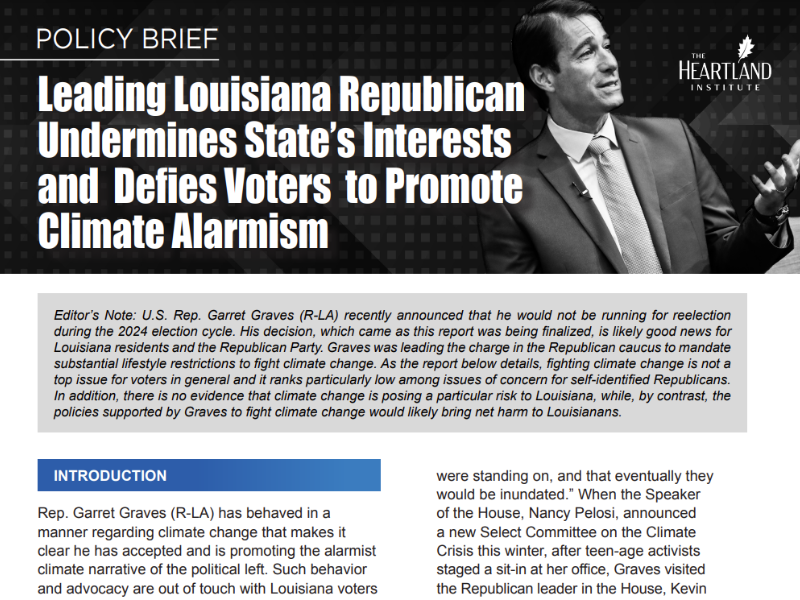The U.S. Department of the Interior is reviewing natural gas wells in Pennsylvania state forests to determine whether they are in compliance with the Land and Water Conservation Act. The federal review has the potential to shut down energy supplies, cut off state revenues, and destroy thousands of jobs.
Recreational Use at Issue
The Department of the Interior’s National Park Service is investigating 175 gas wells drilled in Pennsylvania state forests, plus additional wells expected to go into operation on publicly owned land.
The 1964 Land and Water Conservation Act created the Land and Conservation Fund, which requires public park, forest, and recreational lands acquired or developed with money from the fund not be converted to nonrecreational use without prior approval of the Park Service. Under the law, if any such conversion of land occurs the state must buy land of at least equal value to compensate for the loss. In addition, the state must use any revenues from leases or royalties derived from the conversions for conservation or recreational purposes only.
The Sierra Club and other environmental activist groups argue placement of a natural gas well in a state forest “converts” the forest to nonrecreational land. Pennsylvania state officials counter the state forest remains available for recreation and is only minimally affected by the scattered natural gas wells.
Economic Bounty at Risk
The outcome of the Park Service’s inquiry could have a profound effect on the Keystone State’s economy. Pennsylvania has leased some 700,000 acres of its 2.1 million-acre state forest system for oil and gas drilling, with 130,000 acres being used for drilling wells in the Marcellus Shale Formation.
The federal Park Service has the power to grant a waiver for conversions to nonrecreational use. But Pennsylvania, which has received $162 million from the Conservation Fund over the years, has never requested or received such a waiver. According to the Sept. 21, 2011 Pittsburgh Post-Gazette, the state channeled $383 million derived from three recent lease sales on state forest lands directly into the state’s general fund to help balance the budget.
In a letter sent in early July to the Department of Conservation and Natural Resources (DCNR), the Department of Environmental Protection (DEP), and the National Park Service, the Sierra Club called on state officials to halt leasing and issuing of drilling permits in state forests and parks until it has been determined which public lands in Pennsylvania were purchased or developed with money from the Conservation Fund.
But DNCR Secretary Richard Allan says he is confident the commonwealth is in compliance with the law. “We have not identified any basis that Marcellus Shale gas extraction does not satisfy the National Park Service’s substantive requirements for such extraction,” Allan commented to the Post-Gazette. State officials emphasize all royalties from gas extraction on state lands, including Conservation Fund lands, now go to conservation and recreation.
Money Flowing In
The controversy comes at a time when many rural communities in Pennsylvania are experiencing an economic boom courtesy of the Marcellus Shale’s rich deposits of natural gas. Many rural landowners who were barely able to make ends meet only a few years ago are cashing in on their mineral rights by allowing drilling companies to extract gas from their property.
Similarly, the commonwealth’s coffers are filling up with the proceeds it receives from the lease sales on public land.
Temporary Disturbance Explained
“From a practical standpoint, extraction of natural gas should hardly be considered a ‘conversion,'” said Karen Bullich Moreau, president of the Albany, NY-based Foundation for Land and Liberty, a legal foundation focusing on land use and property-rights issues. “These lands may be temporarily disturbed on the surface to install the wells, with minimum impact on the natural environment.
“It should make conservation-minded citizens rejoice that the land can remain undeveloped and that a source of revenue has become available to fund maintenance of public lands for people to enjoy,” Moreau explained.
Bonner R. Cohen, Ph. D. ([email protected]) is a senior fellow at the National Center for Public Policy Research.





